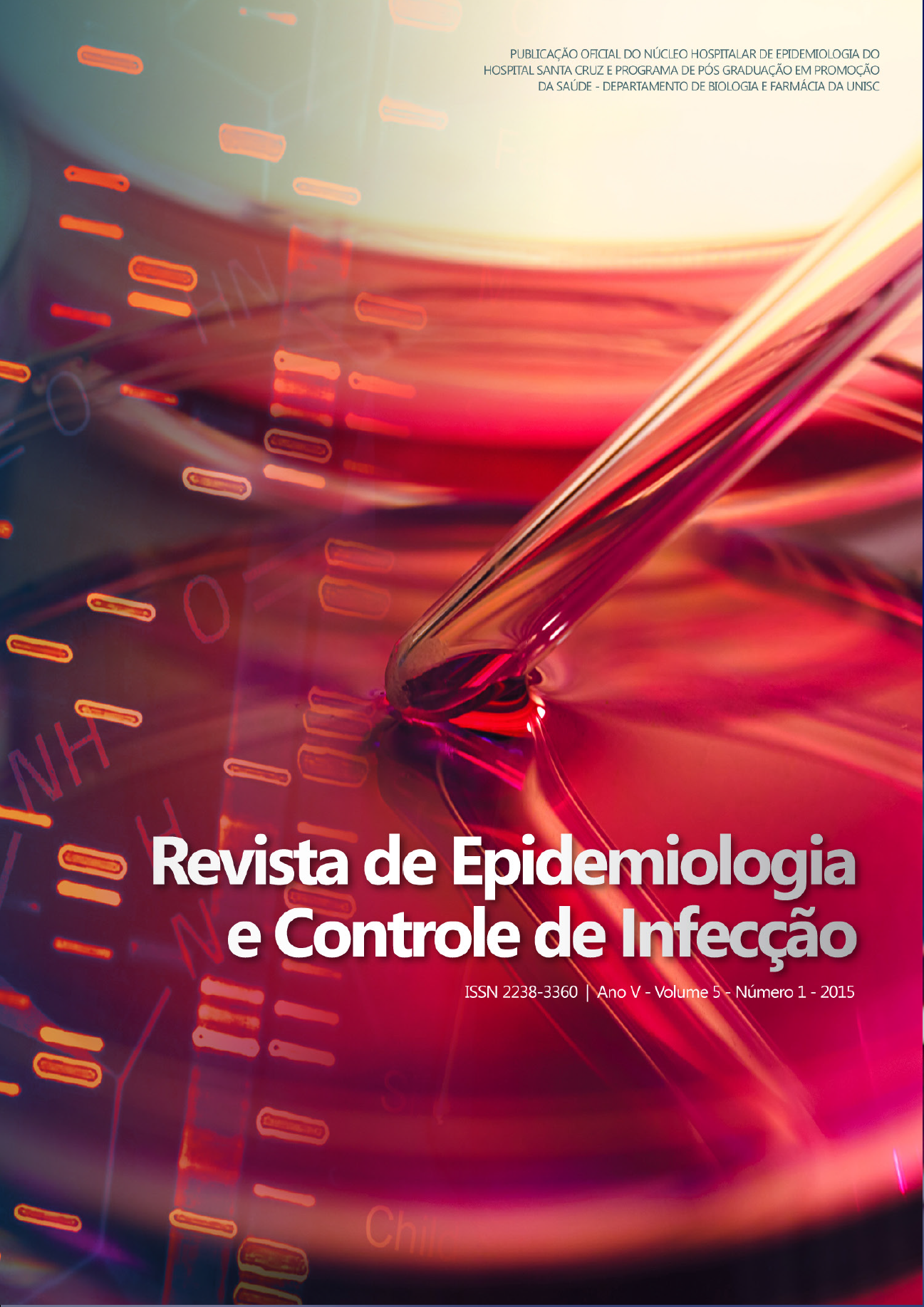Biological risk in the context of nursing practice: an analysis of favoring situations.
DOI:
https://doi.org/10.17058/reci.v5i1.5396Abstract
Backgound and Objectives: Health professionals, especially nurses, are constantly at risk for occupational accidents through exposure to different agents that can be carried in blood, secretions, skin appendages, among others. Thus, the present study aimed to describe the scientific literature regarding situations that favor the occurrence of occupational accidents. Methods: a retrospective, qualitative review study was performed by searching the database of the Virtual Health Library, from March to April 2014. A total of 15 articles were identified on the proposed subject, published between January 2008 and December 2013. Results: Among the variables that influenced the occurrence of these accidents the following were the most important ones: stress, rushing, carelessness, failure to use personal protective equipment (PPE) and the evening shift. Accident prevention is one of the main premises to be met in risky activities, especially in healthcare, in which many accidents are caused by human error probably originated from a poor education system and lack of knowledge on prevention methods and protection. Nursing professionals are exposed to risk in all areas of the institutions where there is direct contact with patients and their biological waste. Conclusion: It is necessary to implement a new paradigm of biosecurity education, aiming to develop technical, theoretical and ethical professional skills, to ensure that teams provide adequate and safe assistance. KEYWORDS: Occupational Risks; Biological Agents; Nursing.Downloads
Downloads
Published
How to Cite
Issue
Section
License
The author must state that the paper is original (has not been published previously), not infringing any copyright or other ownership right involving third parties. Once the paper is submitted, the Journal reserves the right to make normative changes, such as spelling and grammar, in order to maintain the language standard, but respecting the author’s style. The published papers become ownership of RECI, considering that all the opinions expressed by the authors are their responsibility. Because we are an open access journal, we allow free use of articles in educational and scientific applications provided the source is cited under the Creative Commons CC-BY license.


